
Many years ago, I was set a task that was to accompany my application for a place at art school. I was asked to make a drawing of an apple, together with peel and paring knife, that must be placed on top of a mirrored surface. At the time I remember feeling a little overwhelmed and rather intimidated by the whole idea. Little did I know that decades later I would be making an artistic career out of painting reflections in their many forms.
Many of my own students are initially daunted when confronted by a still life that contains glass or metal as they often find it too advanced or difficult. However, once they have learnt how to break down and approach the rendering of reflective surfaces, there has been no holding them back – and it is this approach that I want to show you here.
Creating a convincing impression of reflective objects does require careful observation of the subject. The most pleasing aspect when suggesting any reflective surface, is the abstract quality of the shapes and the mark making that results. If you are a less experienced artist, you may like to start with a coloured glass object as it has more solidity than clear glass.
Recycled glass is my personal favourite, it is thicker and has the lovely turquoise edges that is fun to suggest. Jars of foodstuffs provide us with two challenges: not only the glass receptacle with its contents, but also the reflections and highlights. Metal or enamel jar lids give us the opportunity to explore colours for different metal finishes and their highlights. You could also consider tarnished or rusted enamelware if you wanted more interesting textures to depict.
この記事は Artists & Illustrators の February 2021 版に掲載されています。
7 日間の Magzter GOLD 無料トライアルを開始して、何千もの厳選されたプレミアム ストーリー、9,000 以上の雑誌や新聞にアクセスしてください。
すでに購読者です ? サインイン
この記事は Artists & Illustrators の February 2021 版に掲載されています。
7 日間の Magzter GOLD 無料トライアルを開始して、何千もの厳選されたプレミアム ストーリー、9,000 以上の雑誌や新聞にアクセスしてください。
すでに購読者です? サインイン

Still life IN 3 HOURS
Former BP Portrait Award runner-up FELICIA FORTE guides you through a simple, structured approach to painting alla prima that tackles dark, average and light colours in turn
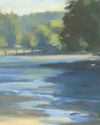
Movement in composition
Through an analysis of three masterworks, landscape painter and noted author MITCHELL ALBALA shows how you can animate landscape composition with movement
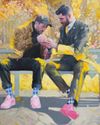
Shane Berkery
The Irish-Japanese artist talks to REBECCA BRADBURY about the innovative concepts and original colour combinations he brings to his figurative oil paintings from his Dublin garden studio

The Working Artist
Something old, something new... Our columnist LAURA BOSWELL has expert advice for balancing fresh ideas with completing half-finished work
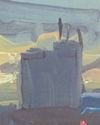
Washes AND GLAZES
Art Academy’s ROB PEPPER introduces an in-depth guide to incorporating various techniques into your next masterpiece. Artwork by STAN MILLER, CHRIS ROBINSON and MICHELE ILLING
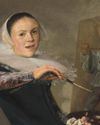
Hands
LAURA SMITH continues her new four-part series, which encourages you to draw elements of old master paintings, and this month’s focus is on capturing hands

Vincent van Gogh
To celebrate The Courtauld’s forthcoming landmark display of the troubled Dutch master’s self-portraits, STEVE PILL looks at the stories behind 10 of the most dramatic works on display
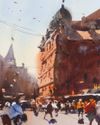
BRING THE drama
Join international watercolour maestro ALVARO CASTAGNET in London’s West End to paint a dramatic street scene
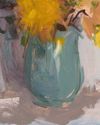
Serena Rowe
The Scottish painter tells STEVE PILL why time is precious, why emotional responses to colour are useful, and how she finds focus every day with the help of her studio wall

Bill Jacklin
Chatting over Zoom as he recovers from appendicitis, the Royal Academician tells STEVE PILL about classic scrapes in New York and his recent experiments with illustration